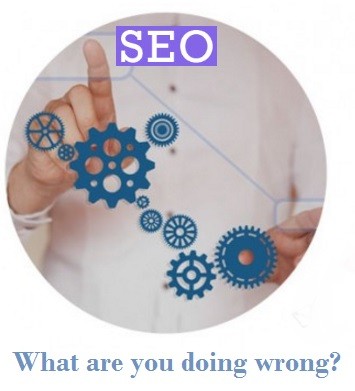Web users are exercised by pop-ups which can be distracting as much as they are annoying. Equally, captchas can be one of the most bothersome things on the web. Even if they drive irritated visitors from your website, which in essence might not offend you, how do you feel about losing conversions? The overarching concern regarding the negative effects of captchas on your website is loss of earnings and no return on investment. The whole concept and establishment of captchas resulted from the explosive growth in the web at the end of the 1900s and the corresponding increase in spam. The latter phenomenon was counteracted with a spam prevention or blocking system named captchas whose raison d’etre was to stop spam robots from carrying out their task of recognising spam and penalising accordingly.
Even though captchas were designed to block spamming they proved in reality not to be totally spam proof as they were quickly outwitted by spam robots and their architects. However in spite of their shortcomings they did manage to filter some of the spam, which is the reason why they remain a popular feature on Websites. Their existence, whilst helpful in that respect can also act adversely as a barrier to real human visitors. That causes a dilemma for site owners in their analysis of the pros and cons of captchas. Do the advantages outweigh the disadvantages? As an anti-spam application captchas come at a price in that they hinder search engine crawlers from performing their natural role of scanning webpages and rewarding certain algorithm criteria in the Search Engine Results pages. The problem for search bots is that content could be so far beyond their scope and accessibility that they simply move on to more friendly sites.
When not written and presented properly with due care and strategic planning, captchas can actually cause data loss. Such an extreme scenario might well occur. However, countenance the situation where your captcha is placed near unreadable text or where it has been filled in inaccurately resulting in the erasure of the data and causing the angry user to start over again. How many visitors in that situation would be put off to the extent that they would not be bothered to refill a form just to purchase something from your website? It follows that captchas, if they adversely affect UX and as a consequence degrade or prevent spider indexation of web pages beyond them, will prove a barrier to SEO in this context.
To make some comparisons – spam is less annoying and less expensive than loss of conversions and the resultant loss in revenue. Captchas on diverse locations such as newsletters or shopping sites can be a definite turn-off for site visitors or customers who find them frustrating and a distraction. The more illegible and diffuse the captcha the greater the likelihood of conversion loss with potential customers going elsewhere to make a purchase. Interestingly, the captchas with the highest rejection rates are those connected with sound and video. That is not at all surprising especially with the the growing popularity of on-site media trends. The greatest click away rates are caused by those captchas that for potential customers waste the most time and register the greatest disapproval. If they are not conversion killers and they are not obviously penalising your rankings in SERPS then use them in the more friendly ways we have mentioned.
Tecchies are continuing to look for more effective alternatives as spam blockers – it is a work in progress. In the meantime there are captcha variations you can deploy to minimise user turn-off
and site rejection. An alternative is to introduce a simple maths problem for the user to solve – much more friendly than the unreadable letters that hack people off. A definite replacement for a captcha is a customised spam blocking solution and there are many to choose from. Currently there are universal spam filters for sale that provide the type of protection sought by professional Websites.
From your perspective, the resolution of the dilemma – to use captchas or not – can only be based on your own personal experience. If you do not get a lot of spam and you find that captchas interfere with conversions then the obvious thing to do is get rid of them. However, adversely, if your site analysis indicates that captchas do not bother your visitors whilst you still receive a lot of spam – then it is probably better to retain the captcha.
Our team of digital marketing experts and web design Belfast and web design Newry teams can help with any digital marketing, adwords, video production, social media, SEO, Magento or web design questions you may have.

